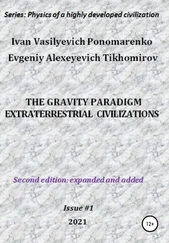Mrs noticed the change in him, and cheered up as well.
In this way a semblance of normality returned to the Malgas household. It did not last.···
After several weeks Mr Malgas’s single-minded dedication to maintenance produced an unexpected result. One evening he was kneading a scoop of wintergreen into a fibrous knot near the heart of the plan when he noticed a breeze-block lying on the ground nearby. He looked at it in surprise, naturally, whereupon it vanished without trace.
How often in his thankless quest for the new house — at first under Nieuwenhuizen’s tutelage, latterly on his own — had Malgas yearned for just such a keystone; how often had its absence weighed heavily on his mind. Yet now, when the key finally appeared, he could not grasp it! It must be a practical joke, he thought, someone’s pulling my leg. But this was not borne out by the evidence. There were no mirrors to be seen, no give-away wires, no burning cigarette-ends. Nowhere on the carefully swept plot was there a single mark that Malgas could not account for, no footprint, no tell-tale gouge or scrape. Finding his way cautiously to the scene of the appearance, or rather the disappearance, as he thought of it, he went down on his hands and knees and examined the surface closely, but the breeze-block itself had left no impression. He was forced to dismiss it as a figment of his imagination, a side-effect of stress and overwork. Wasn’t he holding down two jobs? He didn’t breathe a word to Mrs.
The following evening’s shift held no surprises. But the day after was a Saturday, and he was obliged to spend the whole afternoon tending the plan. Towards sunset he was sweeping with a grass broom when a ghostly balustrade floated into view some five metres above the ground and dependent upon nothing at all.
A less steadfast man might have taken to his heels, but Malgas stood firm. He even had the presence of mind not to confront the apparition directly. He sensed danger: he saw himself turned to stone. So he maintained the steady rhythm of his sweeping and watched the floating balustrade out of the corner of his eye. It shimmered, and shimmied, and emitted a halo of brilliant light. It faded, and was on the point of vanishing altogether, but, as Malgas’s heart skipped a beat, it glowed again with new intensity and appeared to stabilize and solidify somewhat. It grew a landing, it excreted a film of crimson linoleum, it oozed wax. Then it gave birth to a flight of stairs, each riser condensing in the incandescent vapour and toppling in slow motion from the edge of the tread above it, shuffling languidly into place. The handrails of the grand staircase curved gracefully, uncoiling like stems, and progressed slowly but surely down to the ground. A pool of yellow light seeped out, gathered itself, and extruded from its syrupy depths five strips of Oregon pine, which hovered just above the surface. They came closer, he smelt wax and sawdust, they eased in below the speeding bristles of his broom. The bristles chased over the floorboards and scared clouds of lemon-scented dust out of the cracks. These particles spun gaily in the rosy air, phosphoresced into pointy golden stars and sifted gently down, enveloping him.
Malgas let out his breath with a whoosh. He cast aside his broom, dispersing the staircase into a haze of ordinary dust-motes, and launched himself across the plan in an ecstasy, whooping with joy and bellowing to wake the dead, “I can see! I can see!”
Nieuwenhuizen slept through the ruckus, but Mrs came running to the lounge window and looked on aghast.
Round and round went Mr, leaping into the air and waving his fists, drumming on his thighs, tearing his hair, laughing and crying, smearing his tears into mud on his cheeks, frothing at the mouth, rolling head over heels, swallowing his tongue, collapsing, steaming. Yes.
”I’ve tried to be happy for you,” Mrs said, “but I really don’t get this. Are you imagining things? Is it a case of play-play? Are you hallucinating? What the hell’s going on out there?”
”None of the above,” Mr replied firmly. “The new house. . materializes. It’s a manifestation.”
“He’s having visions.”
“Of course, one has to be receptive.”
“Goes without saying.”
“Then it’s like this — although words don’t do it justice: a paintbrush with a tousled head swooshes across a blank screen, and swooshes back again, scattering gold-dust and glitter, and 1-2-3, a multi-storey mansion appears, in full colour.”
“As if by magic?”
“Hey presto! Clinker brick and corrugated iron.”
She thought: He’s flipped his lid, he’s seeing things. But I suppose we should count our blessings. At least it’s all in his mind; the real thing would be intolerable.
Now that he had something concrete to go on, Malgas tried to engage Nieuwenhuizen in conversation, on the reasonable assumption that a familiar voice and a well-loved topic would coax him back into the land of the living, and so he introduced a daily report-back into his programme. During these sessions he sat on a stone at the end of the tent where he imagined Nieuwenhuizen’s head to be and spoke matter of factly about his new powers of insight. “I must say: Bakelite, yes,” he would say, “balusters, bay windows, breastsummers, bricks of course, and, I almost forgot, braai-spots. Please insert, I do declare.”
Then he tended the plan, and block by block, wall by wall, with an unpredictable oozing of mortar and PVA, with innumerable proliferations and ramifications, with digressions, diversions and divagations, with false starts, blind spots and dead ends, with set-backs and quantum leaps, two steps forward and one step back, the new house made an appearance, until one day he found himself enclosed in it, surrounded on all sides and sealed off from the outside world. And still the house continued to grow: here a room, there a room, here a passage in between. Here a wall, there a wall, here a screen. And storey by storey, here a floor, there a floor, now a mezzanine, the house continued to grow.
It was a magnificent place, every bit as grand as Malgas had thought it would be, but it had its shortcomings, which he was quick to perceive too. It had no depth. It had the deceptive solidity of a stage-set. The colours were unnaturally intense, yet at the slightest lapse of concentration on his part the whole edifice would blanch and sway as if it was about to fall to pieces.“It has to be said,” he said, feeling insecure.
Interestingly, although he had learned to see the new house, and understood that this accomplishment was somehow connected with his love for the plan, the exact relationship between the two continued to elude him. He was puzzling over this one day when he recalled the secret nail, which had lain forgotten under the compacted remains of the ash-heap. No sooner had he called the nail to mind, than the entire house spurted out of the ground.
Until this moment he had never dared to venture from his post in the entrance hall at the foot of the grand staircase, but now he was carried aloft on a wave of optimism and found himself in a reception room on the second floor with the whole house humming around him, alive to his senses, ablaze with light and colour. As he gazed upon his luscious surroundings, his mouth began to water. The place was good enough to eat. He would start on the wall next to the fireplace — layers of flaky stone sandwiching globs of caramelized mortar, studded with cherries and nuts. He had never seen so much light gathered together in one place! It poured from crystal chandeliers and twisty candelabra. It dripped from lozenges of coloured glass. It seeped like honey from the brick and gleamed like a sugared glaze on slabs of creamy marble and chocolaty wood.It was so sweet to be alive inside the new house that Malgas swooned.
Читать дальше












